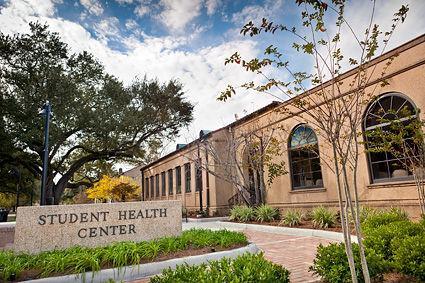Saturday night football in Death Valley, watching clouds roll by on the Parade Ground and listening to the Memorial Tower chime the alma mater at noon are better in hues of purple and gold, but one in 10 University students views these experiences in black and white — the hues of depression.
No one wants to talk about depression. No one wants to be sad. So put on a smile, be a good lad and march on. Just think positive thoughts, right?
Unfortunately, that is not how depression works. It can interfere with school, work, relationships and most parts of the day.
There is a negative social stigma that moseys along with depression. It’s a feeling of guilt and a fear of becoming a burden to your loved ones. But with depression, silence is anything but golden — silence can lead to death.
According to the U.S. Centers for Disease Control and Prevention, suicide is the third-leading cause of death for Americans 15 to 24 years old, and suicide is one of depression’s strongest risk factors.
Speaking to loved ones and getting the proper medical attention, whether through therapy or medication, must become as socially acceptable as taking a trip down to the Student Health Center to treat a cold. Treating the brain for depression needs to be synonymous with treating the lungs for asthma.
The stigma of depression is not a lone ranger in the hush-hush of mental illness.
The National Alliance on Mental Illness reported that one in four Americans will experience some type of mental illness within a given year. That could range from anxiety to bipolar disorders.
Fill the Cox Auditorium with 1,000 students, and 181 of them are likely to have an anxiety disorder and a good number of them wouldn’t talk about it.
Mental illnesses are a reality, and the person sitting next to you in class may have it.
Your best friend may have a mental illness but could be scared to talk about it. Approximately 60 percent of adults suffering from a mental illness received no professional help in the previous year. Let your friends know it’s OK to talk about mental illness, and encourage them to seek professional help.
The University’s Student Health Center has six clinical social workers, four clinical psychologists and one psychiatrist on its mental health staff.
Ridding our society of mental illness’ negative social stigma is in our hands.
With upcoming budget cuts to LSU, mental illness must be a priority, or our mental health services will probably be one of the first programs cut, if the past is any indicator.
In 2013, when Gov. Bobby Jindal made cuts to the state’s primary and secondary education systems, The Early Childhood Supports and Services program, a school counseling program that assessed the mental health of low-income students, lost funding, and 76 employees lost their jobs.
If mental health is not a priority among Louisiana’s citizens, mental health services will be cut in a time where they are needed more than ever.
Justin DiCharia is a 20-year-old mass communication junior from Slidell, Louisiana. You can reach him on Twitter @JDiCharia.
Opinion: Mental health treatment should be a priority
February 5, 2015

LSU Student Health Center
More to Discover







